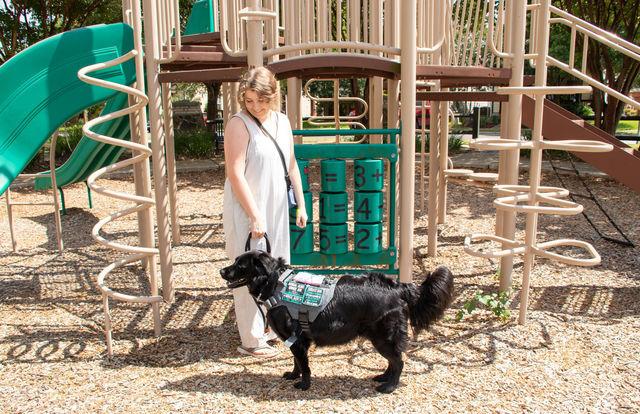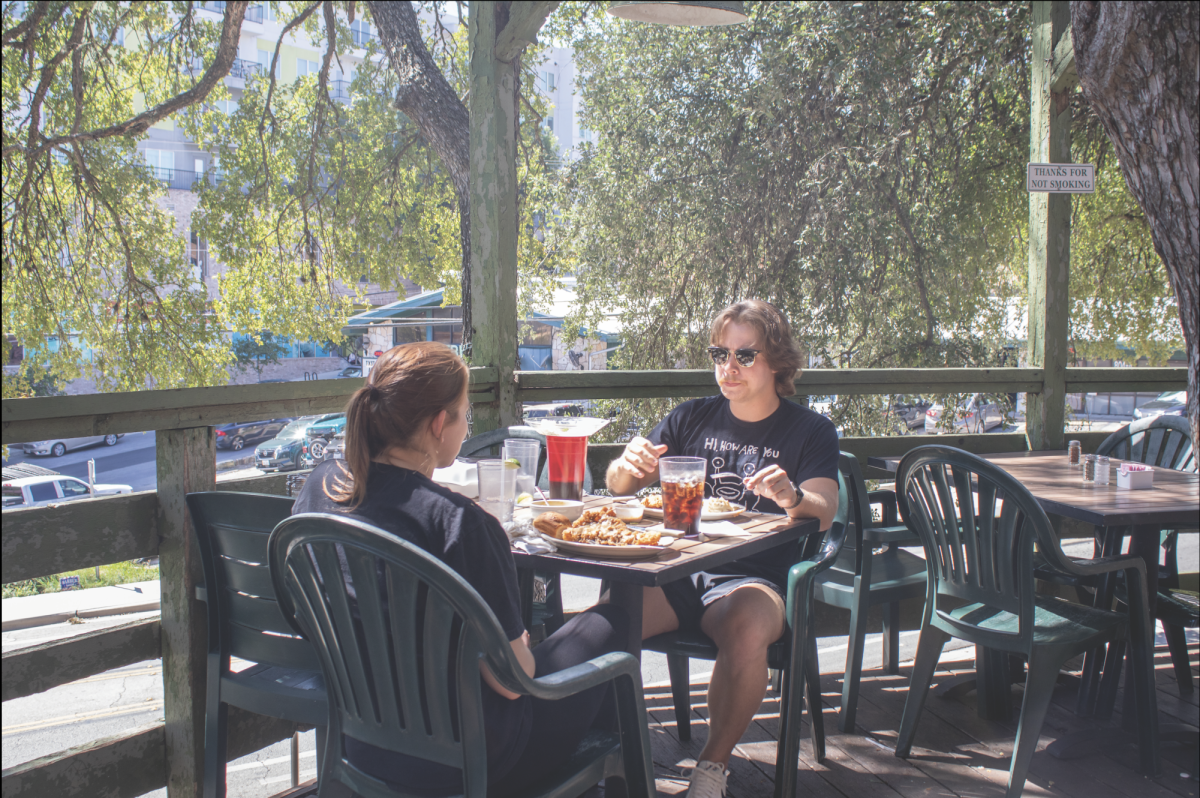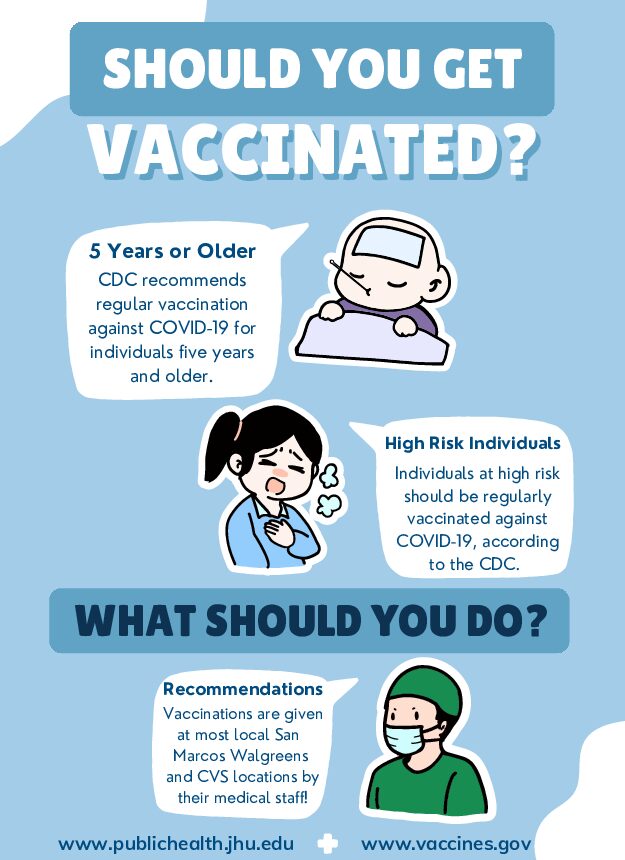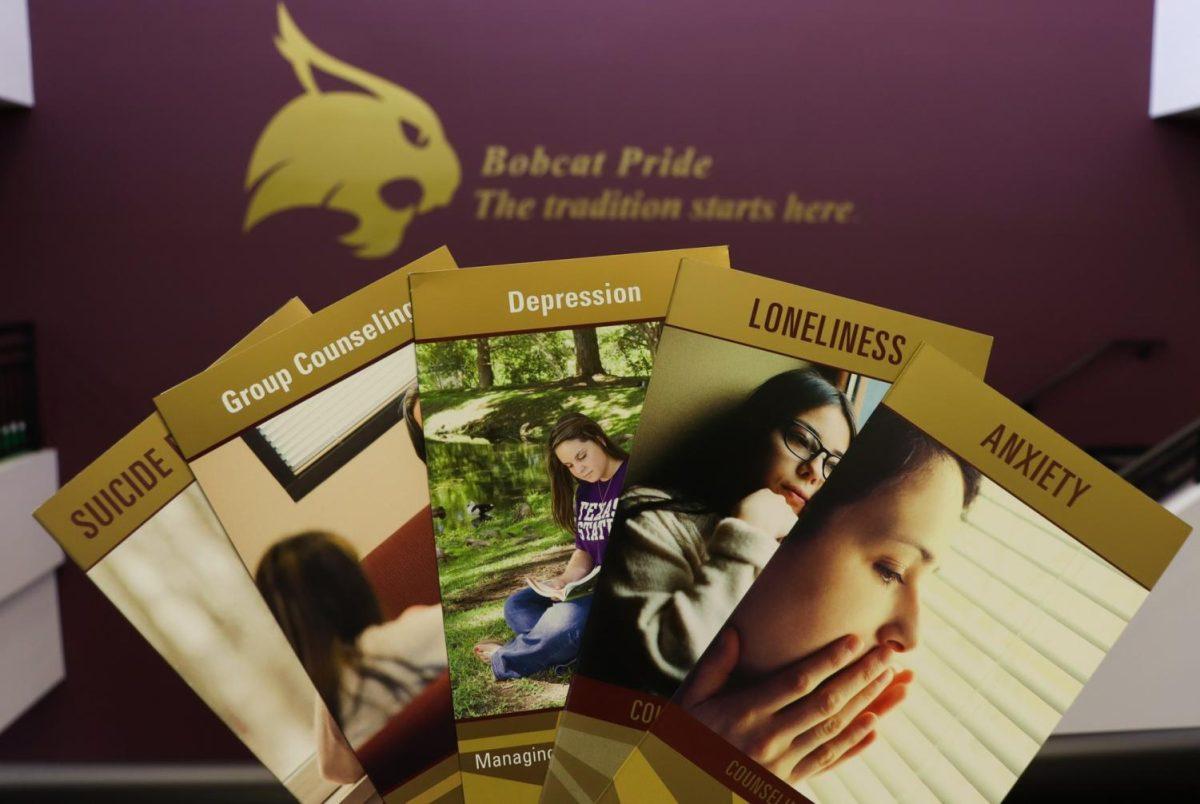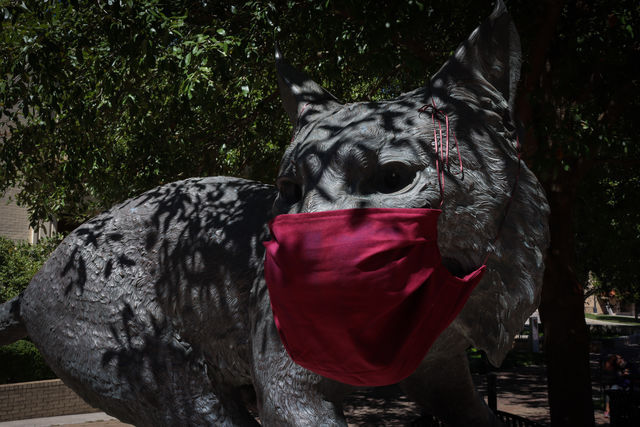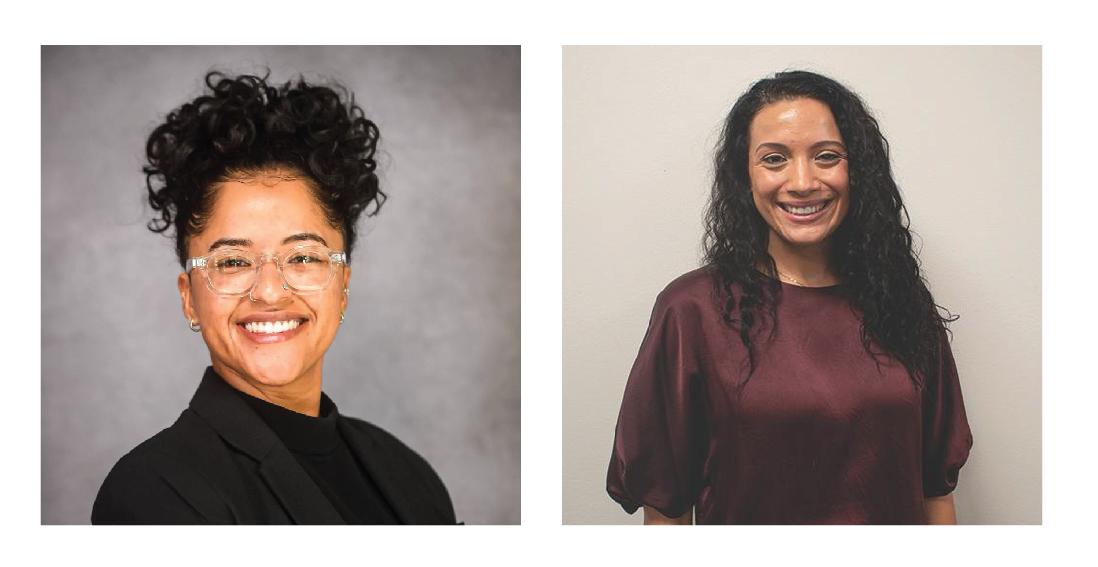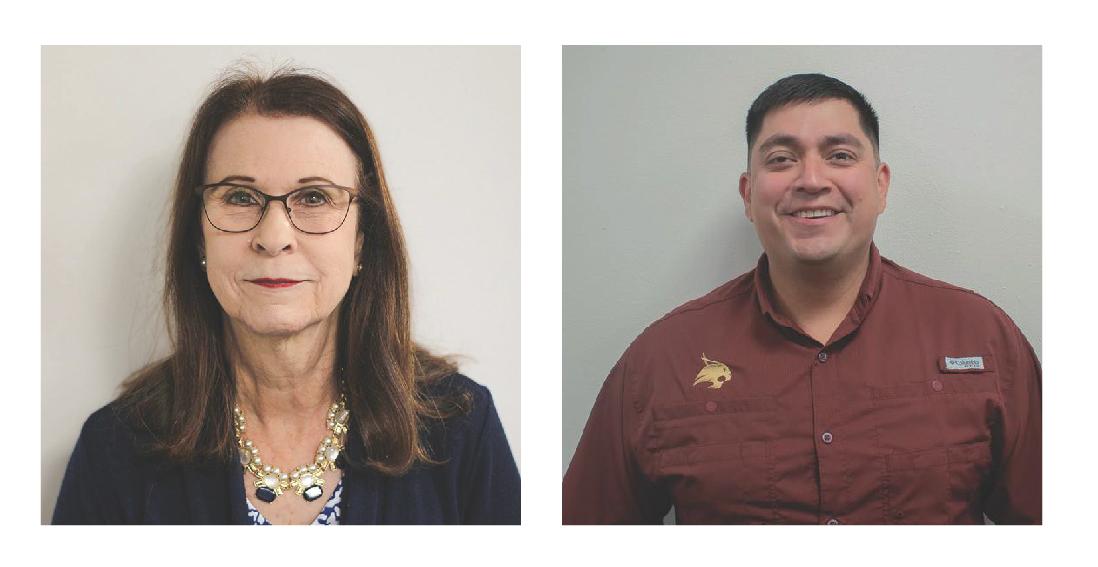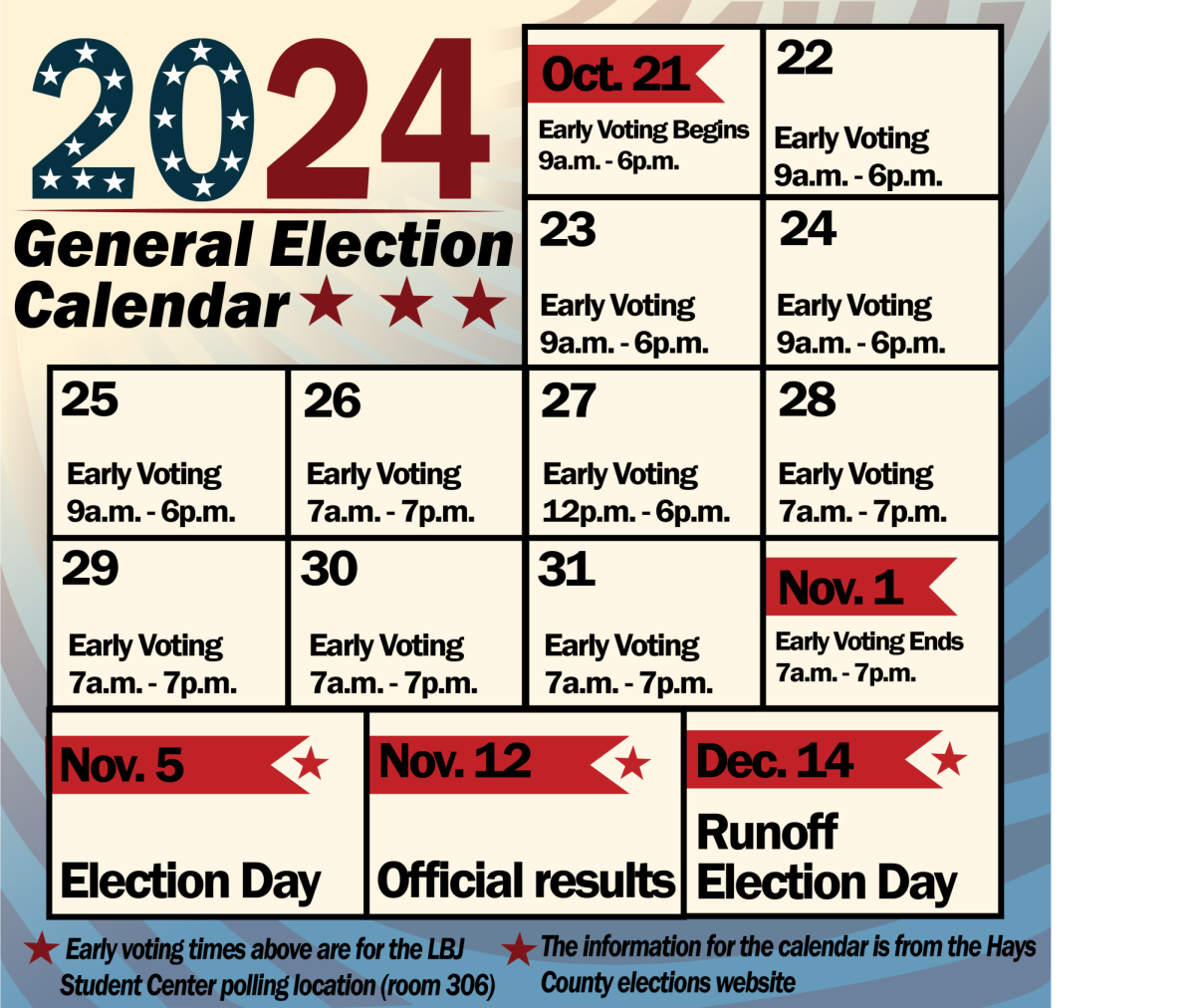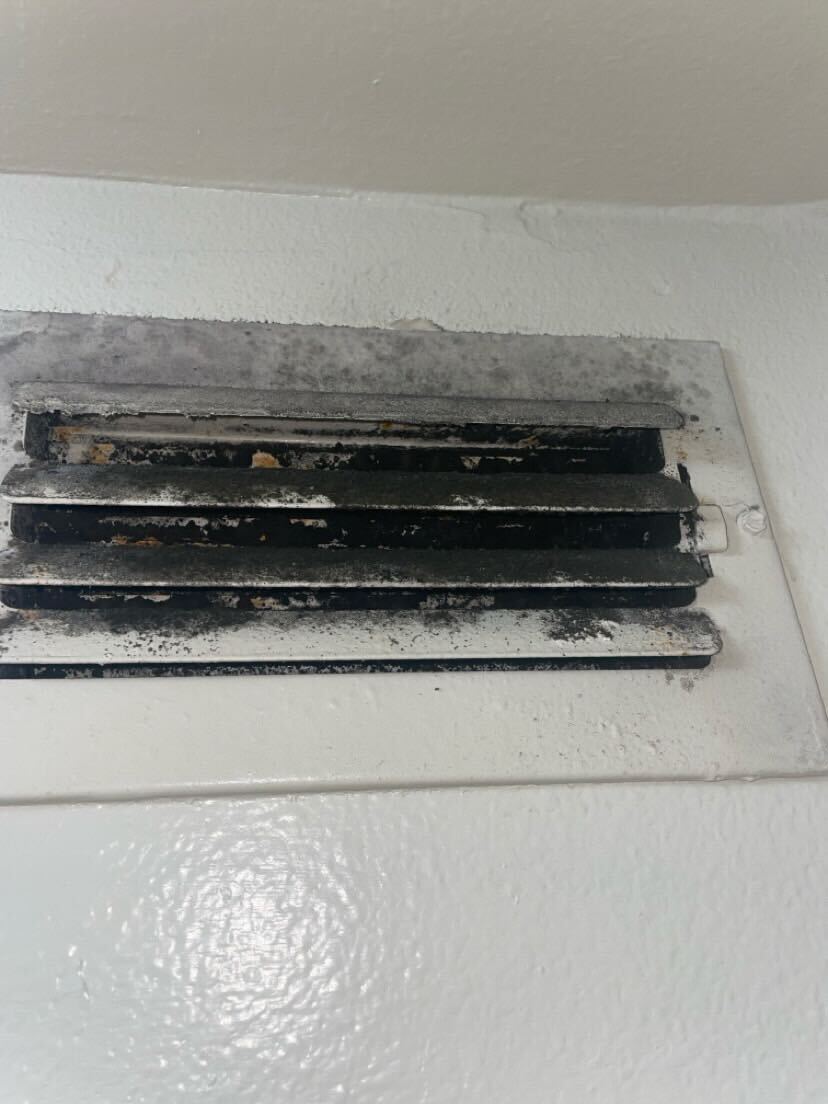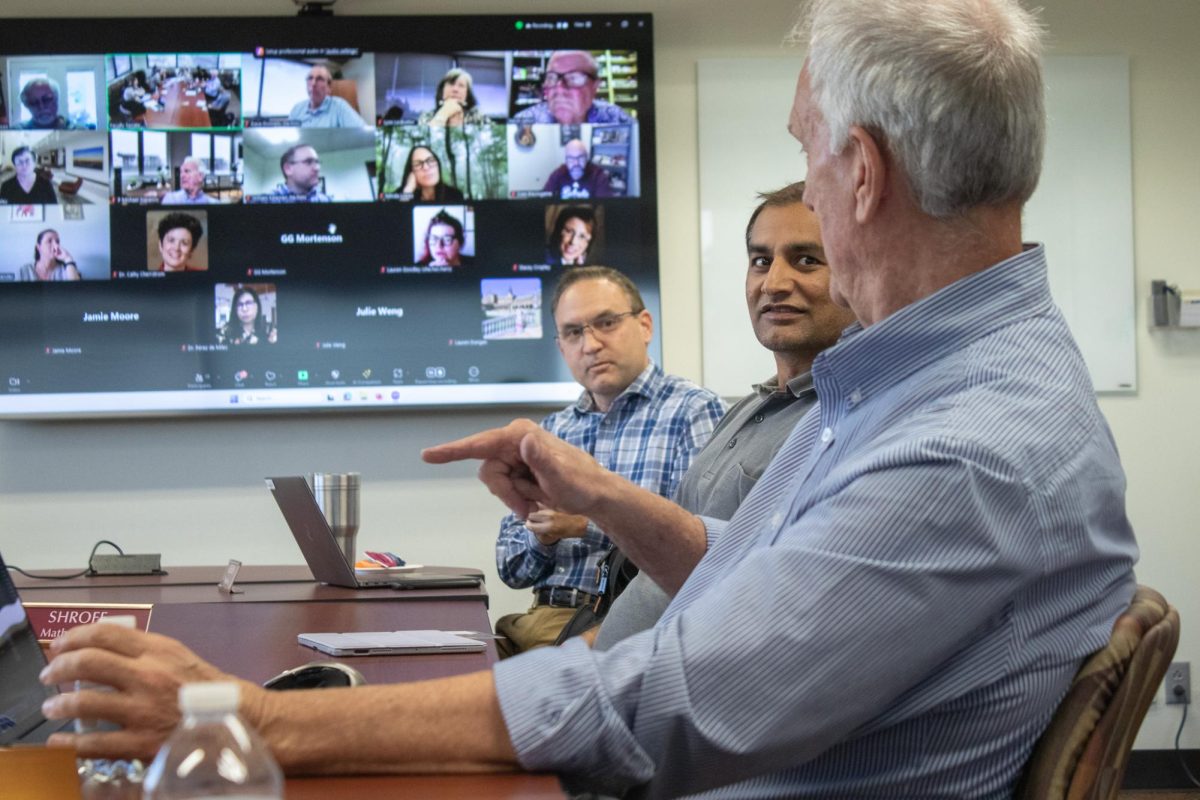Over the past year, students with disabilities were forced to readjust their methods of learning as the majority of university curriculum was facilitated through a virtual or hybrid course delivery. Students who live with ADHD, epilepsy, hard of hearing, blindness, anxiety, diabetes and other disabilities now prepare to readjust their learning habits again with the return of in-person classes.
When classes were remote, Abigayle Friehauf, an anthropology junior, found it more comfortable to learn from her own home. Attending class online with her service dog at her side, who helps with seizures and post-traumatic stress disorder, makes learning easier.
“Before COVID hit, it was a little difficult being in class, just because I did have a lot of people and teachers react to my service dog because she was very cute and very fluffy,” Friehauf says. “It was kind of hard because, a lot of the time, I even had one teacher disrespect me in front of the class because I wouldn’t let her pet the dog while class was in session. So, it was definitely kind of hard, but after a while, I kind of got used to it and was able to handle it better and stuff.”
With online learning, Friehauf says she didn’t have to worry or prepare for an awkward situation where her dog would be discussed in class.
Abigail Gage, a journalism junior, who experiences chronic migraines and has type one diabetes, got her service animal in August 2019. Gage intended to have the dog help her while on campus, however, because of the pandemic and switch to remote learning, the service animal training she paid for wasn’t regularly put to use.
“Remote learning kind of got rid of all the training that we paid for right before I came to college, just because she wasn’t going to classes, and we weren’t really going out, so that was difficult for her,” Gage says. “So, I guess, I’m not even sure if I’m gonna bring her back next year, or if I need to find some alternative to helping my low blood sugar, but that was probably the hardest obstacle was, like, her training went pretty downhill.”
From the virtual classes, Gage also faced difficulties with sitting in front of a computer for long periods of time.
“Because of the migraines, the blue light from the computer screen was pretty hard for me,” Gage says. “I would struggle to finish assignments, and I’ve never really had that issue before. I would kind of have to take a break or ask for an extension, occasionally, and also felt like I wasn’t learning as well.”
Gage says she looks forward to returning to campus because it allows her to receive a better education and decreases her migraines. However, she is worried about the potential spread of COVID-19 on campus, since she is at a higher risk because of her condition.
Throughout the past year, Texas State’s Office of Disability Services has attempted to provide educational assistance to students, like Gage, who are at a higher risk of catching COVID-19. Office of Disability Services Assistant Director Bruce Coonce says this focus has allowed the office to help students while seeing the reoccurring problems students with disabilities have with remote learning.
“I would say that there were certain students that said the online was easier, but they tended to be students with chronic medical conditions that were episodic, you know, had flares that might have affect attendance or students who … because of visual impairment or some other reason, you’re not able to drive, some of those students found it easier,” Coonce says. “I would say the preponderance of students that I talked with, however, found it more difficult sometimes because there was little to less structure in an online class.”
ODS usually focuses on helping students adapt to their classes, but, due to COVID-19, the office has had to make modifications. Office of Disability Services Director Gavin Steiger explains the office received over a thousand schedule modification requests from students who sought to participate in classes virtually between the summer of 2020 to the summer of 2021.
“One thing that our office was tasked to do this past year was to provide modifications, which are different from accommodations,” Steiger says. “Our office, which will typically provide accommodations for students with disabilities, and the accommodations are meant to provide equal access and equal opportunity. The modifications, they’re a little bit different because these would be available to any student that was in the high-risk population. So, it didn’t matter if the student had an underlying medical condition, if they were 65 years of age or older or if they were pregnant, any of those students could be eligible to request a modification.”
Due to the situations, students with disabilities confront while on campus, Friehauf believes more remote options can make classes be less of a hassle to get to and feel more inclusive.
“I haven’t really been back on campus yet … due to the fact that I also have a hard time with driving because, I know a lot of people don’t really know this, but after somebody has a seizure they have to wait three to six months before they can drive again,” Friehauf says. “It’s definitely harder for me to get to campus because the bus routes don’t come to my house, and I’d have to rely on a friend or Uber, which costs money and things like that. So, it is a little more difficult to have to come to campus.”
As students return to campus and compare accessibility differences between in-person and online courses, Steiger says ODS is focusing on creating more classes this fall suited to the needs of students with disabilities. However, even with this goal, he says classes that require a heavy amount of face-to-face interaction, such as labs, are not always an option, virtually.
“Our role here with the ODS Office is really to ensure that whatever the faculty decide to do, is also accessible to individuals with disabilities,” Steiger says. “I would hope that we will have been able to learn a few things and health technology can be able to help us moving forward.”
To register with a disability or have questions about disability accommodations visit the Office of Disability Services.
Categories:
Students with disabilities reveal the impact of COVID-19 and remote learning
Timia Cobb, News Editor
August 27, 2021
Anthropology Junior Abigayle Friehauf and her service dog at a playground, Monday, August 16, 2021, in San Marcos.
0
Donate to The University Star
Your donation will support the student journalists of Texas State University. Your contribution will allow us to purchase equipment and cover our annual website hosting costs.
More to Discover


